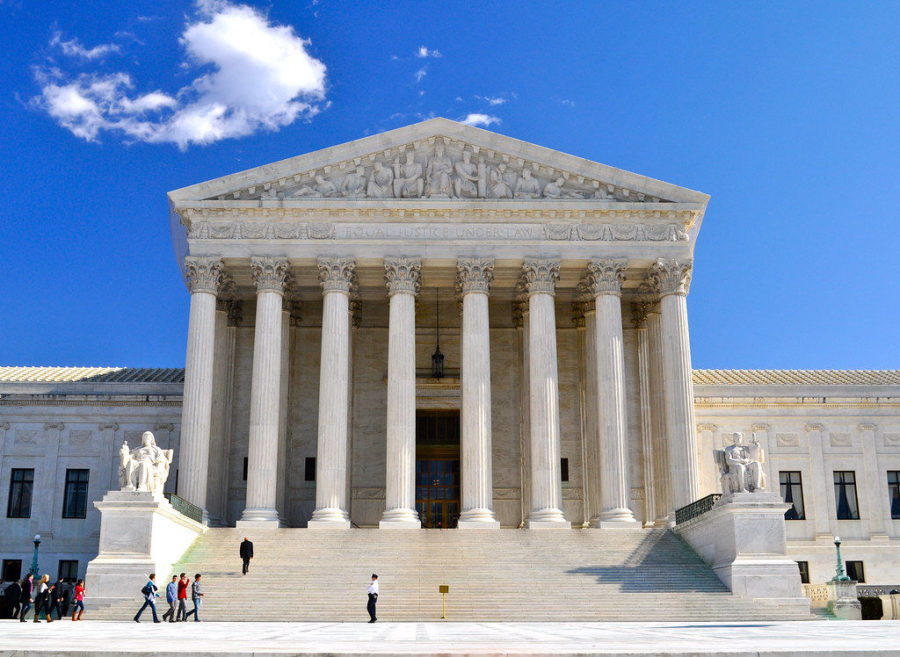Iowa State reacts to NCAA Supreme Court case on withholding benefits from student-athletes
The United States Supreme Court is the highest court in the federal judiciary and is currently composed of nine justices.
April 22, 2021
As a nonprofit, the NCAA brings in more than $800 million during the March Madness basketball tournament every year, which is its biggest revenue generator. In total, the NCAA makes over $1 billion each year.
Regardless of revenue, athletes are awarded scholarships coming out of school. About half of the athletes do not even receive scholarship money and participate as walk-ons, and 59 percent of Division I athletes earn scholarships. The average of these scholarships is $17,000.
The original case would increase educational benefits for football and men’s and women’s basketball programs. Such benefits include scholarships, paid postgraduate internships, computers, musical instruments and other types of equipment related to education.
With that being said, the justices remain concerned that their involvement could ruin any authority the NCAA has. They said it’s an institution that has brought joy to the world for many years, and they do not want to be the reason it falls apart.
Josie Herbst is a former Iowa State volleyball player who graduated in the spring of 2020. She explained just how significant it could be for athletes to reap the added benefits the case discussed.
“I think it is a touchy subject, but most people on the outside looking in do not really understand the lives of student-athletes,” Herbst said. “I loved playing volleyball and going to school. Some of these extra benefits would have been very helpful, though.”
Other athletes focused on receiving more compensation from their own name, image and likeness.
Jarrett Degen is a two-time All-American wrestler for the Cyclones. He discussed the hoops he has to jump through when he runs camps for youth wrestlers. He explained it’s difficult to advertise his own accomplishments for financial gain.
“I think at the very least, it would help athletes all over the nation if they were able to advertise themselves and their accomplishments better,” Degen said. “Especially when you begin talking about sports like wrestling or tennis that do not bring in the amount of revenue that big sports like football and basketball do.”
Dirk Deam, teaching professor of political science, said why continuing to give compensation to athletes can lead to more and more corruption.
“There is already corruption in what sports receive more benefits currently,” Deam said. “The football coach being paid more than the governor means there is something wrong with the educational responsibility.”
The Supreme Court justices question the NCAA argument regarding athlete amateurism, claiming it’s the easiest way for them to continue to reap the rewards of student-athletes’ labor while keeping these labor costs low.
Associate Justice Stephen G. Breyer discussed concern about the court getting involved with what counts as amateurism and what doesn’t.
“This is not an ordinary product,” Breyer said. “So I worry a lot about judges getting into the business of deciding how amateur sports should be run.”
Along with other athletes, Herbst was happy this issue is coming to the forefront.
“It makes me excited for future athletes that their experience may be made a little easier than mine was,” Herbst said. “I would love to see the whole situation be improved, and I think the first step is just that it is being talked about.”

















